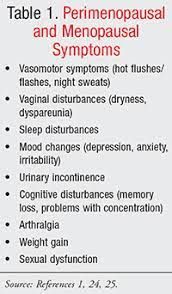Introduction
Menopause is a natural part of life for women, but it’s still a topic many
shy away from. Why is menopause so taboo? For far too long, menopause has been
wrapped in silence, surrounded by misunderstandings and myths. This silence
does a disservice to the millions of women who experience it and those who will
in the future.
A thoughtful, diverse group of women in conversation, symbolizing openness around menopause.
What Is Menopause?
Menopause marks the end of a woman’s reproductive years. It’s a biological
process when the ovaries stop producing eggs, leading to a decline in estrogen
and progesterone levels. Learn more about the biology of menopause. Most women experience
menopause between the ages of 45 and 55, but the timing can vary.
Diagram showing the hormonal changes during menopause.
Perimenopause: The Transition Phase
Before menopause, many women go through perimenopause, a transition phase
where hormone levels fluctuate. This stage can last from a few months to
several years. During perimenopause, women may experience irregular periods,
increased PMS symptoms, and other physical or emotional changes. Understand the
perimenopause phase.
Timeline illustration showing perimenopause transitioning into menopause.
Why There’s a Stigma Around Menopause
The stigma around menopause is rooted in cultural perceptions of aging and
femininity. Historically, society has placed a woman’s value on youth,
fertility, and beauty. Explore the history of menopause stigma. Media portrayals add to
the stigma, often showing menopausal women as past their prime, which is far
from the truth.
The Emotional and Psychological Impact of Menopause
Menopause affects the body, mind, and emotions. Many women experience anxiety, irritability, or depression during this time. Hormonal fluctuations lead to mood swings, while physical changes can impact self-esteem. Mental health and menopause are deeply connected, and seeking support can make a big difference.
The Physical Changes During Menopause
Hot flashes, night sweats, and fatigue are some of the more common physical
symptoms of menopause. Women may also experience changes in metabolism, leading
to weight gain, or issues related to sexual health. Read more about common menopause symptoms.
Menopause and Hormonal Imbalances
The drop in estrogen and progesterone causes most menopause symptoms. Hormone Replacement Therapy (HRT) can help manage this, though it comes with risks. Explore HRT options and alternatives. Some women prefer natural treatments like herbal supplements or lifestyle changes to manage symptoms.
How Menopause Affects Relationships
Menopause can impact romantic and family relationships, particularly if mood
swings or fatigue affect intimacy. Discover ways to support your partner during menopause.
Open communication with loved ones is key to navigating this life stage
together.
The Importance of Talking About Menopause
Silence only adds to the stigma. Open conversations about menopause
normalize this natural life stage, reducing shame. Why we must break the silence around menopause.
Educating both men and women helps everyone understand the challenges and
experiences of menopause.
The Workplace and Menopause
Many women continue to work while managing menopause symptoms. Workplace
policies that support menopausal women can make a significant difference, from
flexible hours to healthcare access. Employers must create environments where women can thrive, even during this life stage.
Global Perspectives on Menopause
Different cultures have varied perspectives on menopause. In some, it’s seen
as a transition to elder wisdom; in others, it’s avoided altogether. Learn from
global approaches to menopause.
Understanding these diverse perspectives can help break down stigma everywhere.
Menopause and Women’s Health
Menopause puts women at higher risk for conditions like osteoporosis and
cardiovascular disease. Importance of regular health checks during menopause
cannot be overstated. Bone density scans, cholesterol monitoring, and other
check-ups are essential.
Natural Remedies and Lifestyle Changes
Diet and exercise are crucial in managing menopause symptoms. Foods rich in
calcium and vitamin D, regular exercise, and relaxation techniques can help.
Explore natural remedies for menopause.
Practices like yoga and mindfulness also promote emotional balance.
Support Networks and Resources
No one should face menopause alone. Online communities and support groups offer valuable help. Find menopause support and resources. Books, podcasts, and apps provide education, and healthcare providers can guide you through your menopause journey.
Conclusion
Menopause is a natural part of life, but the silence around it has gone on for
too long. By talking openly, we can change the narrative, reduce the stigma,
and ensure women get the support they deserve. Open, honest conversations are
the key to making menopause a normal, respected part of life.

















Comments
Post a Comment
If you have any query, doubt or seek any advice or help, I am always available.